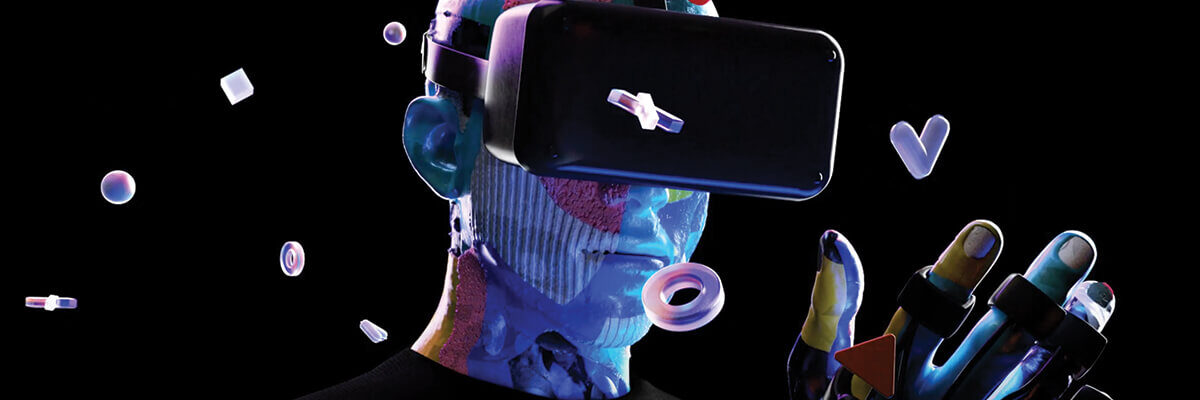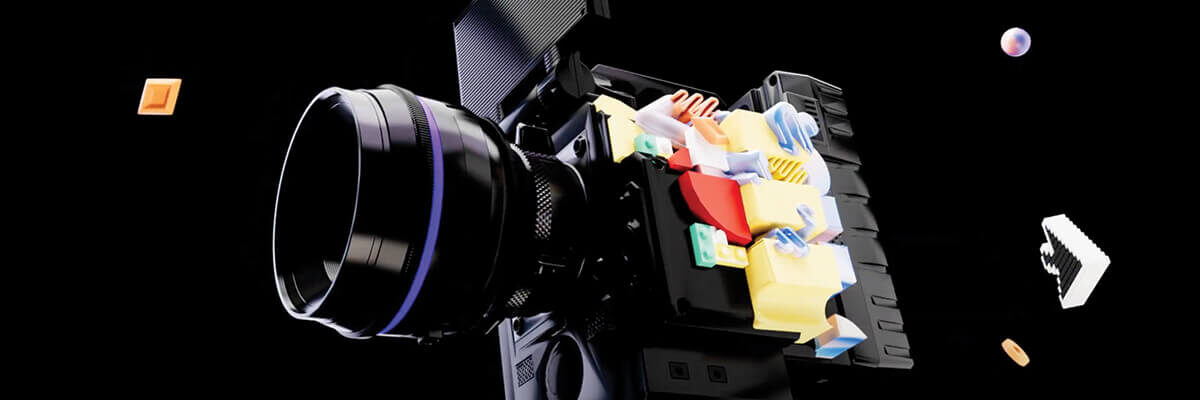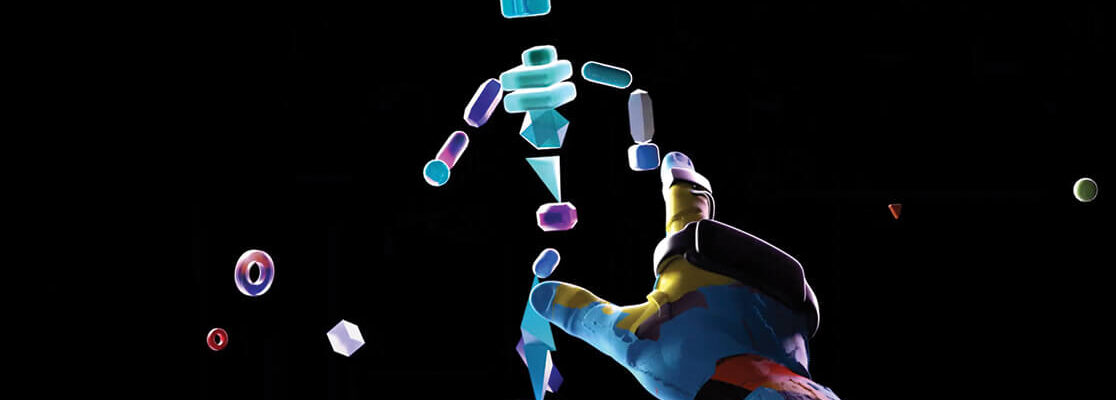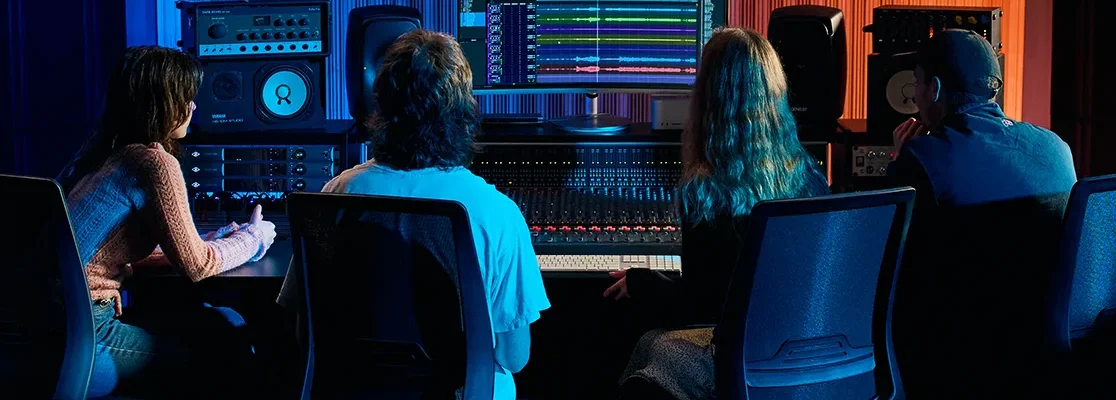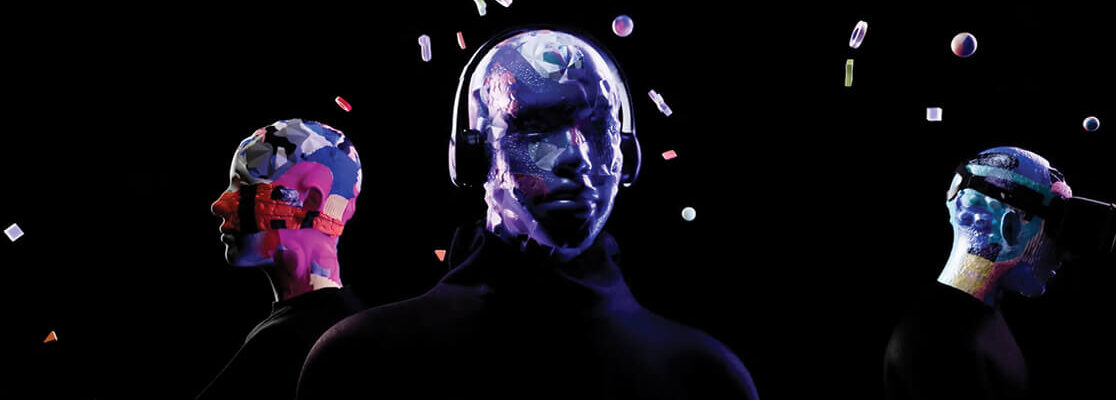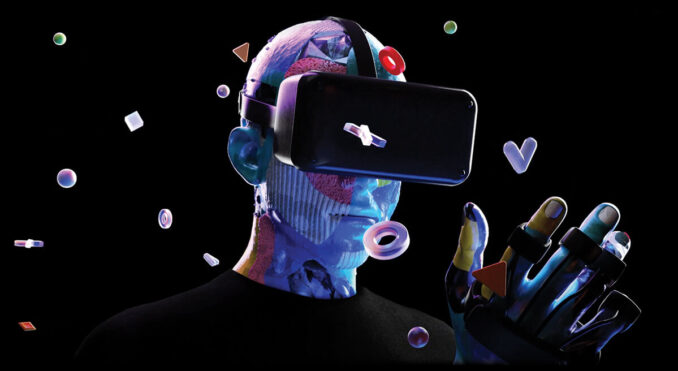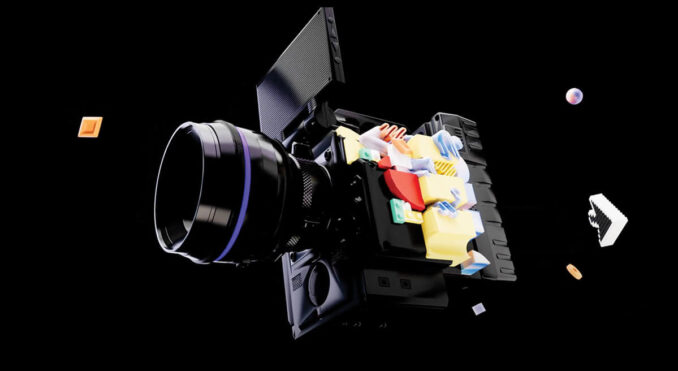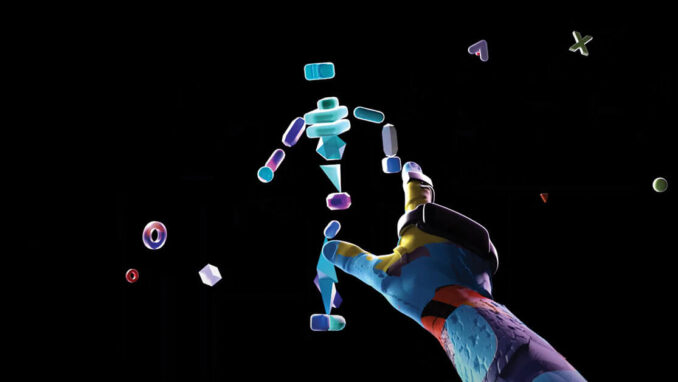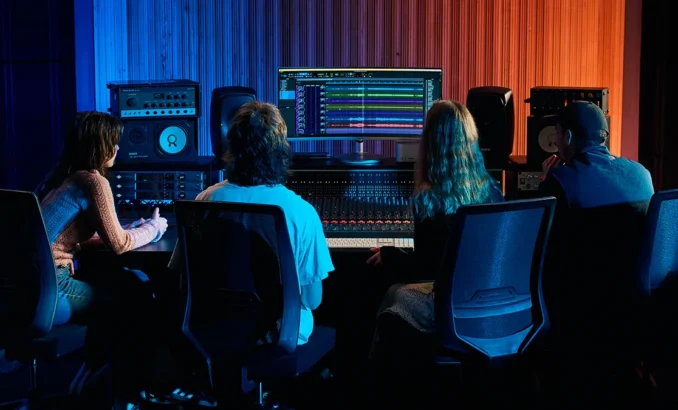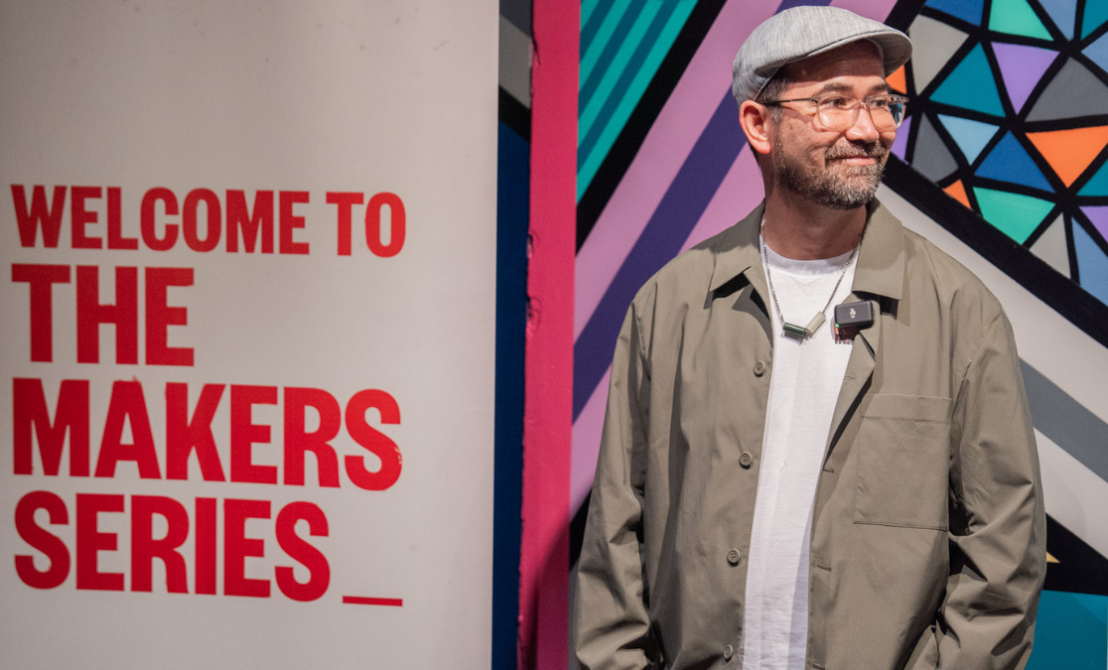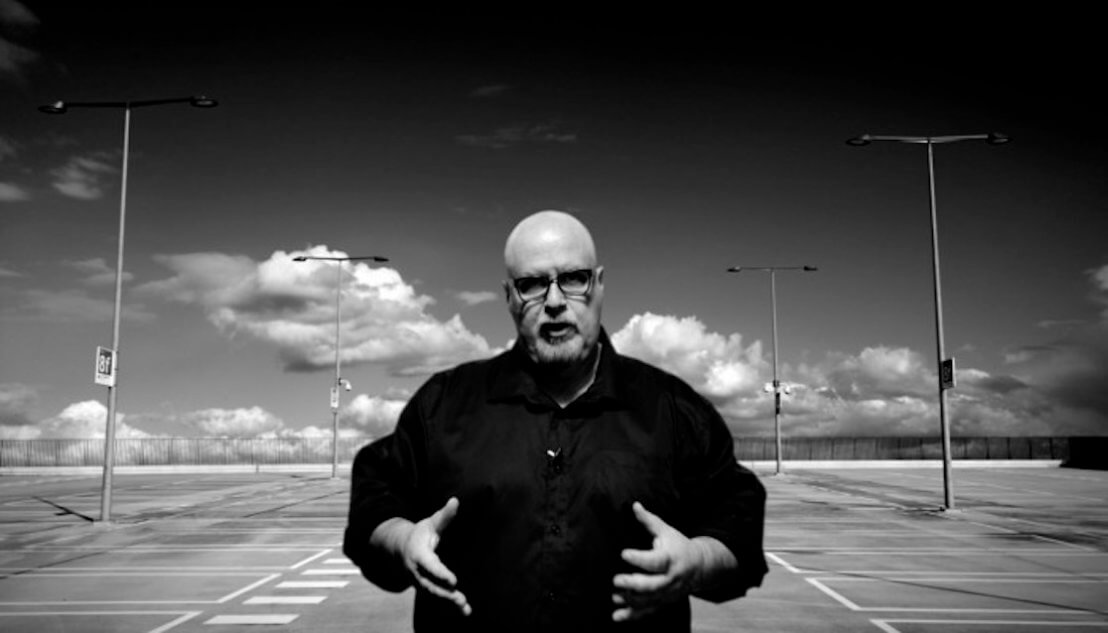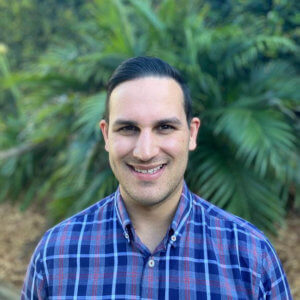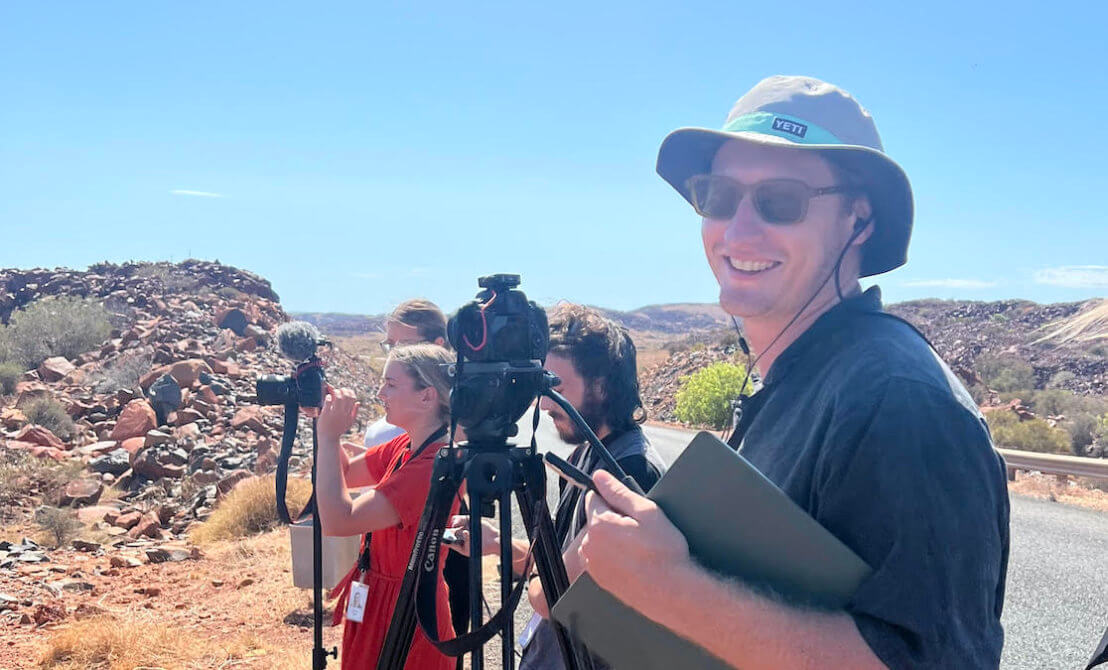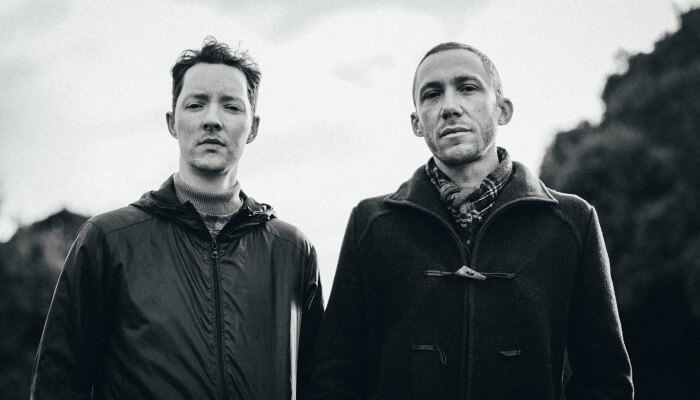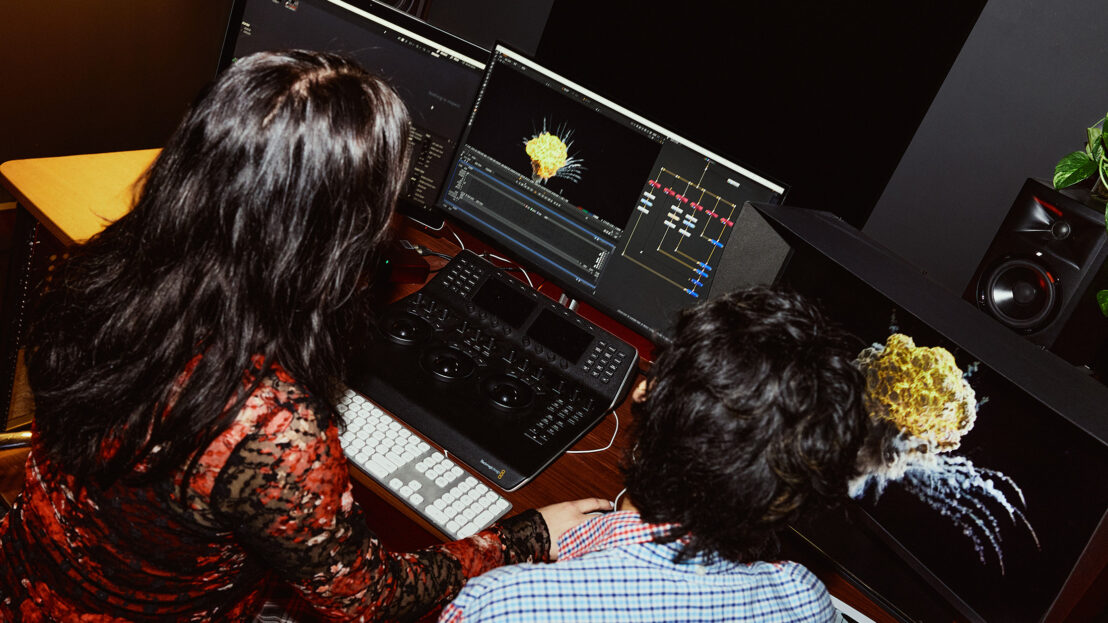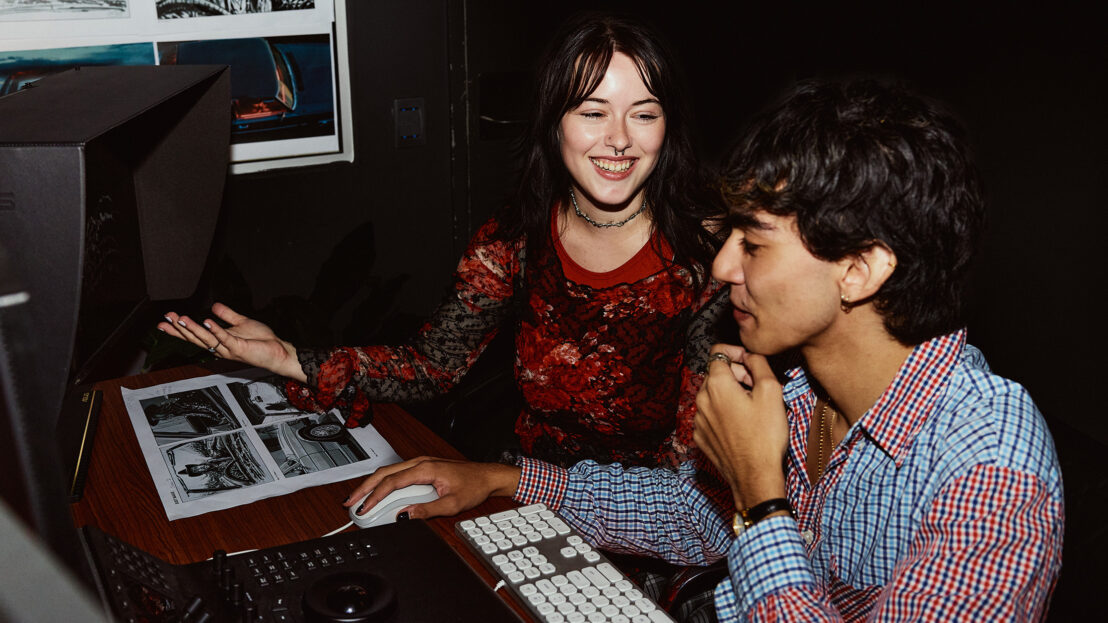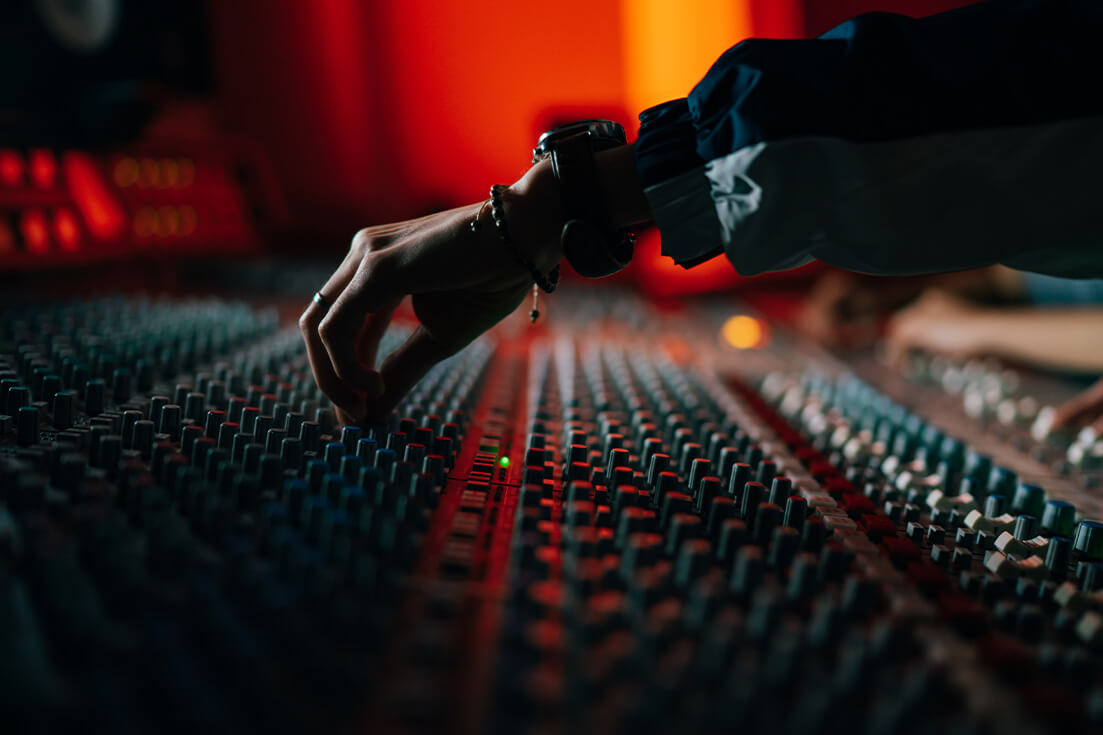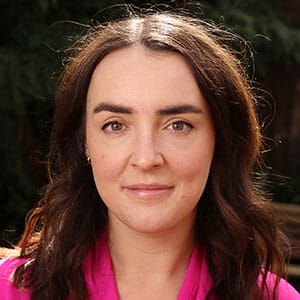
Award-winning film and television producer Nicole O’Donohue joined SAE Melbourne students for an engaging instalment of The Makers Series hosted by SAE Senior Lecturer in Film Dr Robbie Studsor on 9 April. Reel Talk On Film Production offered an in-depth look at Nicole’s impressive work spanning music videos, feature films, television, and international collaborations.
Held on campus and streamed nationally, The Makers Series connects students with successful creative industry professionals who share their inspiring stories and invaluable advice for budding creatives. This session gave SAE students rare access to one of Australia’s most accomplished producers in Nicole, whose portfolio includes The Daughter, Griff the Invisible, Offspring, Otto by Otto and Exposure.
Nicole shared candid insights about navigating the industry, the challenges of creative and budget constraints and the value of persistence.
“You’ve really just got to throw yourself in,” she said.
“I really went through that stage of just saying yes. I took every opportunity I could – music videos, maternity cover in VFX producing, whatever came up. You don’t know where it will lead, but each project teaches you something.”
For Nicole, that experience led to incredible projects.
inspiring career
Her breakthrough came with Spider (2007), a short film directed by Nash Edgerton and starring Andrew Garfield shot on a shoestring budget – a financial constraint she encouraged students to lean into
“We shot Spider over two weekends with about $20,000,” she said.
“We had no idea [Spider] would take off the way it did – it ended up going to Sundance and won an award. That experience really opened up doors. It taught me that budget constraints can be the best creative spark. You might not have time or money to do a scene the way you imagined, but that challenge can lead to something even more inventive. It keeps everyone sharp.”
She followed this with Katoomba, funded by Screen Australia, which won the Dendy Award for Best Short at the Sydney Film Festival.
"It’s how we met our future distributors, who later took on Griff the Invisible [her first feature film]. You realise how important those moments are – they create a chain reaction. One project connects you to the next.”

As a producer, Nicole said one of the key paths to successfully greenlighting projects is getting creative with budgets, sharing she has done everything from crowd sourcing to grant funding initiatives to get work off the ground.
On example was on her film Griff the Invisible, which was developed through Screen Australia’s Indivision Lab, an initiative she credits as pivotal.
“We developed it knowing we were targeting that funding,” she said.
“It was our first time putting together a finance plan and pre-selling the project.”
The student audience was particularly drawn to Nicole’s reflections on The Daughter, co-produced with Jan Chapman. Adapted from Simon Stone’s play (itself an adaptation of Ibsen’s The Wild Duck), Nicole described the development process as deeply collaborative.
“Simon wanted to make films, and we both really connected with the material,” she said. “That trust and shared vision were key.”
TV adventures
In recent years, Nicole has expanded into television, producing series like Frayed, Sisters and Exposure. Speaking on the latter, which was released on Stan, she said she was able to draw on her early career to turn a tight budget to the series’ advantage, something she encouraged students to seek in their low or no-budget projects.
“We had to make hard creative decisions, but sometimes that pressure leads to brilliant moments,” she said.
“One day we only had 20 minutes left to shoot a scene, so we did it in one take – and it was one of the most powerful scenes in the series.”
When asked for advice by SAE students, Nicole stressed the importance of building and maintaining relationships.
“Your future collaborators are sitting right next to you now,” she said.
“Be out there, go to festivals, talk to screen agencies – just stay connected.”
She also encouraged aspiring producers to embrace the full range of roles in the industry, from line production to development.
"If you're willing to try different things, the experience adds up and really informs your practice.”

Nicole’s was the second Makers Series instalment, building on the success of the inaugural session in Sydney in which ABC presenter Namila Benson interviewed Emmy-winning sound producer Martin Kwok.
As host Dr Robbie Studsor noted during the Q&A with Nicole: “These are the stories and insights that you can’t Google – you only get them by being in the room.”
For more information about The Makers Series, visit: https://sae.edu.au/makers-series/
For more information about studying at SAE University College visit: Creative Media Courses – Earn Your Degree in Creative Media | SAE

